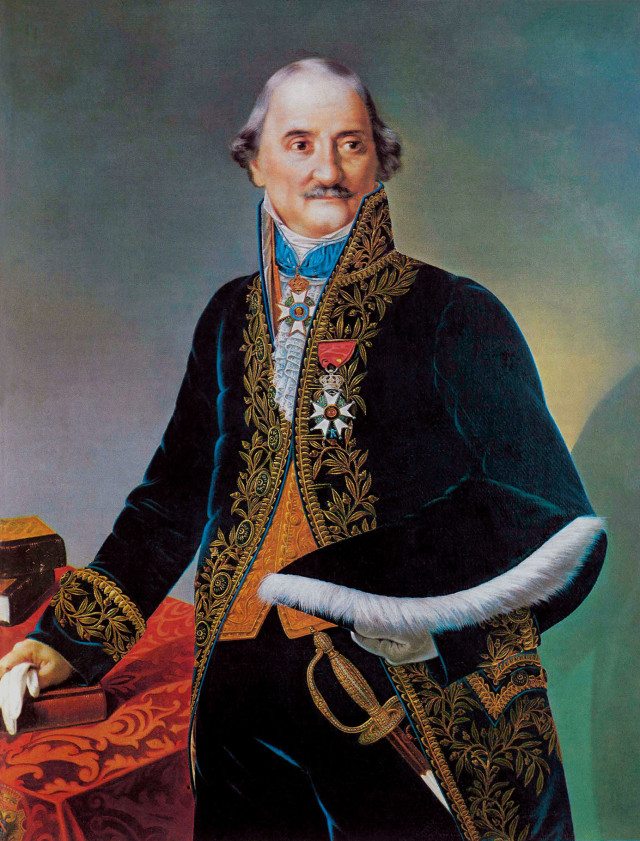During the 18th century, progressive fraternities, who represented the ideas of Freemasonary, made their presence felt in Europe and America. Secret societies, such as the Jacobites in Britain and the Carbonari in Italy, operated as transmission centres for liberal political ideals. In the 19th century, the dynamism of national liberation movements led to these societies multiplying. Many of these were organised around the Greek Question: Ellinoglosso Xenodocheio [lit. Greek-speaking Hotel] (1811, Paris); Phoenix (1812, Moscow); Athina and the Philathenaic Academy (1813, Athens); the Philomuse Society (1813, Athens); Friends of the Muses Society (1814, Venice); all of which promoted the idea of democracy and cultivated pro-Hellenic sentiment.
The Bienfaisance à l’Orient had begun operation in 1782 and, a short while later, was followed by Philogenie. In 1811, Dionysios Romas united these two fraternities and, in 1815, set up one more in Zakynthos called Anagennitheis Phoinix [Reborn Phoenix]. Following his initiation into the Society of Friends (1819), he utilised his existing communication network to reinforce the Friends and, by extension, the needs of the Struggle. Many members of the Society of Friends were firstly members of Masonic lodges. Besides, the structure of the Society itself followed the prototype of Freemasonary fraternities. The trust, secrecy and reliability that characterised the relationship between Friends helped in his aims. At the same time, the progressive ideas of the members, in combination with their social awareness, was expressed through their philanthropic activities, their support of education and other actions of social solidarity.
In a letter, Ioannis-Baptistis Theotokos asks Dionysios Romas for his support in the creation of a fraternity in Nafplio, which would undertake, inter alia, to care for refugees from Messolonghi and Greek orphans and spread patriotism.
Nafplio, 22nd March 1825
‘I asked of you, via Archimandrite Zensos, to send me anything that is required to enlighten us, that is, on how to open a Masonic lodge: the only way in which we may enthuse and attract these patriots to the holy purpose of defending the rights of our homeland etc. Any other system would be dangerous and would create disagreement amongst us…’


